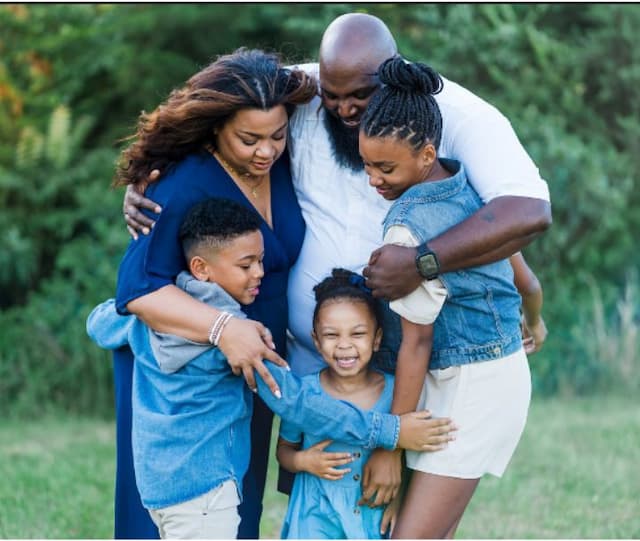5 Interesting Views on The Biblical Age Of Accountability

Maybe you or someone you know has had a miscarriage or has lost a child. That is extremely painful. The grief is beyond words. If that has happened to you or to those you love, I am deeply sorry. No one can replace that person in your heart. You want to see him or her in heaven someday. Perhaps you are looking for some assurance. Here are some interesting Insights into the Biblical Age of Accountability. I hope this is helpful and even comforting for you
View 1: All babies and young children go to heaven
Many believe that babies and at least young children go to heaven based on 2Samuel 12:22-23.
Here is the background of the story: King David lost his first child because of an illegitimate relationship with Bathsheba. The LORD told David the child would die, and David fasted, hoping the LORD would change his mind.
[David] answered, “While the child was still alive, I fasted and wept. I thought, ‘Who knows? The LORD may be gracious to me and let the child live.’
“But now that he is dead, why should I fast? Can I bring him back again? I will go to him, but he will not return to me.” [emphasis mine]
Was King David speaking of going to heaven someday and meeting his child? Not much was known about heaven in David’s day. Or was he thinking that he would go to the grave (called Sheol) where the child would be buried?
Of course, it’s possible that David, like some other fathers of the faith, was intuitive. Some of his songs seem to point to heaven. We’re probably most familiar with Psalm 23 (if we take “dwelling in the house of the LORD forever” to mean heaven, vs. 6)
Alternatively, was David just saying that he could walk to his dead child, but that child could never return to him? This is a literal interpretation. Truthfully, we don’t understand what David was thinking, so we don’t know what he meant.
Along this same vein of thinking, some believe Isaiah 7:15-16 teaches that young children have an age when they know right from wrong, and by application, if they don’t know right from wrong they will go to heaven. Admittedly, babies are innocent of any wrongdoing. But, they do have sin natures that will eventually show themselves as they become toddlers. However, this is not what this passage is saying at all. Here is the complete context:
10 Again the Lord spoke to Ahaz, 11 “Ask the Lord your God for a sign, whether in the deepest depths or in the highest heights.”
12 But Ahaz said, “I will not ask; I will not put the Lord to the test.”
13 Then Isaiah said, “Hear now, you house of David! Is it not enough to try the patience of humans? Will you try the patience of my God also? 14 Therefore the Lord himself will give you[c] a sign: The virgin[d] will conceive and give birth to a son, and[e] will call him Immanuel.[f] 15 He will be eating curds and honey when he knows enough to reject the wrong and choose the right, 16 for before the boy knows enough to reject the wrong and choose the right, the land of the two kings you dread will be laid waste. 17 The Lord will bring on you and on your people and on the house of your father a time unlike any since Ephraim broke away from Judah—he will bring the king of Assyria.” (From Bible Gateway, NIV)
View 2: The Bar Mitzvah or Bat Mitzah view
Another view is that the age of accountability corresponds with a boy’s Jewish Bar Mitzvah (about thirteen years old). Jewish girls are considered women at their Bat Mitzvah (age twelve). Again, we can’t be sure that this is the age of accountability because a Jewish ceremony declared them to be men or women at those ages. Jesus was twelve when he was in the temple asking questions of the religious leaders. It seems for them to listen, he might have already had his Bar Mitzvah and been considered a man.
View 3: Families of Committed Christians go to heaven
Some interpret 1 Corinthians 7:12-14 to say that if a mother or father is a committed Christian, an unbelieving spouse and their children will automatically go to heaven.
To the rest I [Paul] say this (I, not the Lord): If any brother has a wife who is not a believer and she is willing to live with him, he must not divorce her.
And if a woman has a husband who is not a believer and he is willing to live with her, she must not divorce him.
For the unbelieving husband has been sanctified through his wife, and the unbelieving wife has been sanctified through her believing husband. Otherwise your children would be unclean, but as it is, they are holy.
These verses, however, probably refer to the godly life and testimony of a believing spouse or parent. His (or her) excellent Christ-like character could influence family members to come to the Lord for salvation.
View 4: Twenty may be the Age of Accountability
Two places where an age of accountability is discussed in the Bible are Numbers 14:19-30 and Deuteronomy 1:39. God destroyed all the Israelites in the desert for their rebellion, except Joshua, Caleb, and those less than twenty years old (interestingly, most societies consider people to be adults somewhere between eighteen and twenty-one years old). So, could the age of twenty be the age of accountability? We’re not sure.
Here are some additional considerations from Steve Shirley, who writes on this subject:
The significance of the age of 20 is also shown in that no one under 20 was counted in the census or could go to war (Num 1:3-45)(Num 26:2,4)(1 Chr 27:23)(2 Chr 25:5), nor could any Levite work on the Temple unless they were at least 20 yrs old (Ezra 3:8).
The book of Hebrews says that the Promised Land typifies a place of rest
It’s a place of rest for those who are not rebellious and unbelieving (Hebrews 3-4). In that way, heaven is like the Promised Land.
However, it might be countered that the Israelites had to fight for their inheritance before there was peace. Even afterward, because of their disobedience, there were constant wars. Ultimately, the Israelites were cast out of the Promised Land. In that way, the Promised Land is unlike heaven.
Still, when the Israelites were mostly obedient in the days of Joshua, King David, and King Solomon, there was peace and great prosperity. That is what Hebrews means by a place of rest.
What about teens who have committed violent crimes?
If we guess the age of twenty to be the age of accountability, what about children or teens who have committed serious crimes? Won’t they be held liable?
There’s no word for teen or teenager in the Bible. They’re either young men or young women. The Bible says anyone in the Jewish community could be stoned or otherwise killed if they,
Cursed using God’s name (Leviticus 24:16)
Enticed other Israelites to worship other gods (Deuteronomy 13:6-10).
As sons, were stubborn, rebellious, drunk, reckless, violent, unmanageable, disrespectful to their parents, and wouldn’t respond to discipline (Deuteronomy 21:18-21).
Committed any kind of sexual sin (Leviticus 18:6-29)
Murdered someone (Numbers 35:12-30)
“Jehoiachin was eighteen years old when he became king…and he did evil in the sight of the Lord, according to all that his father had done” (2Kings 24:8). God held this teenager responsible for his actions. So, does this mean that if a person under twenty has not committed some serious sins he/she will be let into heaven if he or she dies? There’s no answer to this question.
Furthermore, just because Israelites under twenty were allowed into the Promised Land, and the Promised Land in one way typifies heaven, does that mean God would let anyone under twenty into heaven? We don’t know. We can’t assume he will.
Or, if we apply the phrase from Hebrews, is it only those under twenty who aren’t rebellious and unbelieving who can enter their rest (rest typifying heaven)? Good questions, but there are no definite answers. As far as we know, each person is responsible for his own sins.
View 5: Jesus loves children
Yes! Here is an encouraging scene from the life of Jesus, which may shed more light on the answer as to whether children will go to heaven.
Then little children were brought to Jesus for him to place his hands on them and pray for them. But the disciples rebuked those who brought them.
Jesus said, “Let the little children come to me, and do not hinder them, for the kingdom of heaven belongs to such as these.” When he had placed his hands on them, he went on from there (Mt 19:13-15).
It’s evident from Jesus’ words that God loves children, which should be a great comfort to us. Little children are trusting, and this delights the Lord. Do we want to go to heaven? Then we need to have faith like a child. We need to simply believe and accept his sacrifice on the cross for us.
Conclusion:
It’s possible that God will allow those under twenty who aren’t rebellious and unbelieving into heaven, but we can’t count on it. We must trust our compassionate, merciful, just, and holy God that he’ll do what’s right (Genesis 18:25).
We should, therefore, not take the grace of the LORD for granted. We should tell our children of the grace of God that brings them salvation at the earliest possible age. We should keep urging them and praying for them in hopes that they will repent and turn to the LORD.
EndNote: Personally, I believe if twenty is the age of accountability, then by God’s grace I think he means twenty in mind and body. I think those who have mental challenges who haven’t reached the cognitive ability of a twenty-year-old and aren’t rebellious and unbelieving might also go to heaven. I pray so. God is good.
If you like this post or have any comments, please shoot me an email or leave a comment on this page
If you want to see other related posts about the family, I recommend these:




